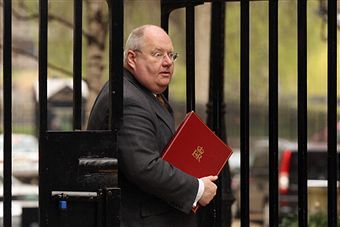 David Orr, Chief Executive of the National Housing Federation, and 551 local councillors
have written to the Times (£) warning that short-term cuts to care charities will bequeath deeper medium-term costs.
They say:
David Orr, Chief Executive of the National Housing Federation, and 551 local councillors
have written to the Times (£) warning that short-term cuts to care charities will bequeath deeper medium-term costs.
They say:
‘Local councils face a difficult spending situation. However, cutting services for the vulnerable does not make financial sense. Without early identification and support, vulnerable individuals will reach crisis point as their needs become more severe, leading to greater pressure on acute health services, the criminal justice system and carers.’
The spending settlement in local government is stringent and some services are being necessarily affected: even model councils like Reading have cut some of its education services. But reformers in local government point out that the effect of grant cuts are a symptom of an inflexible funding system that leaves local government dependent on Whitehall.
The system is certainly counter-productive. Take business rates: Westminster City Council raised more than £1.4bn in business rates last year. £1.1bn of that was pooled nationally and the council received just £178,824,000 of it back. The system is frustrating growth because there is no incentive for local authorities to encourage businesses to start up. This is especially true in underdeveloped cities that receive the bulk of redistributed business rates: according to internal council documents, Westminster collects more in rates than Birmingham, Manchester, Sheffield, Liverpool and Bristol combined. In turn, this encourages councils to keep increasing council tax to secure more revenue.
Localism, it is argued, cannot flourish when so constrained by central government. The DCLG is finally addressing the problem. It is considering two options to make councils self sufficient, while ensuring that money is still redistributed to deprived areas. First, councils pay a fixed contribution and keep all of what they raise on top. Second, councils pay an agreed percentage in central contributions and keep what remains. Both measures would end centrally determined business rate caps, allowing councils to encourage growth. This would appear to contradict the centrally managed Enterprise Zones that are opening in various regions.
The reforms have been welcomed by local authorities. However, there is some concern that this has been left too late. The first wave of local elections is just a month away, and they are expected to check the reform programme.






Comments